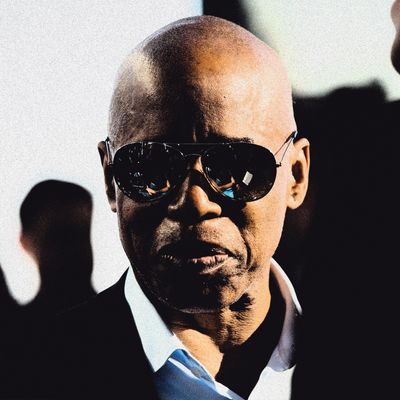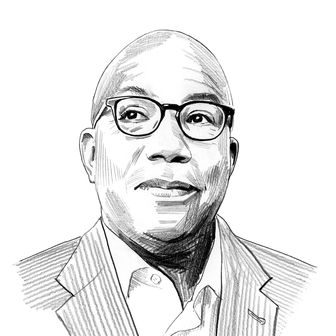
One of the most powerful positions in city government will not appear on the ballot next Tuesday. But the next Speaker of the City Council will have more impact on the lives of New Yorkers than almost any official except the mayor.
Officially, the Speaker will be chosen exclusively by the 51 members of the council when the body first convenes next January — but that will be a formality. The actual choice will be the result of intense, behind-the-scenes jockeying taking place right now, with a deal among insiders expected by mid-December.
The names most frequently being talked about for the post are councilmembers Keith Powers and Carlina Rivera of Manhattan; Justin Brannan and Farah Louis of Brooklyn; and Francisco Moya and Adrienne Adams of Queens, all of whom are expected to win reelection comfortably next week. A seventh hopeful, Manhattan Borough President Gale Brewer, is running for her old seat on the Upper West Side and likely to return to the council as well.
The stakes are high, thanks to a city charter that vests an enormous amount of power in the council — particularly when it comes to spending New York’s $100 billion municipal budget and making zoning and land-use decisions that can create, kill, or transform entire neighborhoods.
Momentous decisions like the closing of the Fresh Kills landfill on Staten Island and the creation of Hudson Yards on the West Side of Manhattan required City Council votes. In recent years, the council voted down major commercial expansion proposals at Industry City in Brooklyn and the Kingsbridge Armory in the Bronx, while giving a green-light to projects that are transforming the waterfronts of Flushing and Greenpoint-Williamsburg.
You get the picture. The council can influence, and sometimes control, major parts of life in New York. And the Speaker controls the council.
Far from being merely first among equals in the body, the Speaker names the members and chairs of all council committees; controls which bills make it to the floor for a vote; and hires the central staff of lawyers, planners, and administrators who are crucial to the process of drafting and considering legislation.
It’s not an easy job — the Speaker has to harness and balance the needs of 50 independently elected councilmembers, who tend to be a restless, ambitious bunch. But Speakers who master the process can wield the kind of power that (re)shapes the city for generations.
The first Speaker, Peter Vallone, famously negotiated the “Safe Streets, Safe City” deal with then-mayor David Dinkins that was used to hire 1,000 new cops in the early 1990s, which slowed and reversed a historic high tide of violent street crime.
Gifford Miller, elevated to Speaker at the tender age of 32, worked with Mayor Bloomberg to raise taxes and slash billions from the city budget in the fraught months following 9/11, when thousands of city workers were laid off and service reductions included the closing of six firehouses (one of which drew protests at which a freshman councilman, Bill de Blasio, got arrested).
Christine Quinn’s two terms as Speaker included passage of a 20-year sanitation plan that expanded recycling and shifted garbage removal from road-clogging trash caravans to water-based marine transfer stations. She also pushed through a controversial repeal of the city’s term-limit law that enabled Bloomberg to serve a third term. (A subsequent referendum restored term limits).
Speaker Melissa Mark-Viverito was the legislative architect of the plan to close Rikers Island that de Blasio first opposed but later embraced. Corey Johnson’s tenure included passage of 11 bills aimed at shrinking the NYPD budget and transferring some police functions to other agencies.
Being the Council Speaker confers a high level of raw power and influence — so high, in fact, that every Speaker of the modern era has gone on to run for higher office, although none have succeeded. That hasn’t stopped this season’s crop of hopefuls for striving mightily for the job.
While there might be one or more public forums at which candidates describe their vision for the job, selecting a Speaker is an insider game. In the ’90 and aughts, winning the position usually meant striking deals with the Democratic Party bosses who tightly controlled — and could usually deliver — nearly all of the votes of the councilmembers from their boroughs.
Miller added a twist to the game by campaigning for council hopefuls in every corner of the city; those who succeeded gave him their loyalty, and their votes, enabling him to be voted Speaker in a 51-0 sweep. Things changed again in 2013, when mayor-elect Bill de Blasio — and the labor and party leaders loyal to him — openly championed Melissa Mark-Viverito, who became the first Latina Speaker.
Eric Adams recently told me that he intends to stay out of the Speaker sweepstakes — but it’s unclear whether he will stick with that plan if, as expected, he is elected mayor. It’s safe to assume that the caucusing that will dominate city politics in the coming weeks will include the mayor-elect, party chairpeople interested in restoring some of their power, and newly elected councilmembers, especially younger progressives who ran against their party organizations.
In a council that will likely be mostly women for the first time in history, women candidates (Carlina Rivera, Diana Ayala, Adrienne Adams, Farah Louis, and Gale Brewer) will have a special appeal. The council will be mostly nonwhite for the first time, which might benefit the Black and Latino candidates (Ayala, Rivera, Louis, Adams, and Francisco Moya). And the relative youth of the new council might add to the appeal of Moya and Brewer, who have served in other elected offices.
The favor of party bosses still matters. Adams has long been the choice of Representative Gregory Meeks, the Queens Democratic chairman, while Louis is close to Brooklyn leader Rodneyse Bichotte-Hermelyn.
And lest anyone think Keith Powers and Justin Brannan are at a disadvantage as white males, both are considered by insiders to have mounted the most energetic efforts to help new members get elected.
All of which is to say that political insiders will be caucusing day and night for the next month or so, trying to figure out who will lead the city legislature in passing laws, multibillion-dollar budgets, and zoning decisions that the rest of us may have to live with for decades to come. Let’s hope they choose wisely.






























